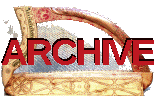

|
The old Gaelic harp traditions of Scotland and Ireland have a huge repertory associated with them. Some of the tunes are still well-kent in traditional music today, whilst many of them are very obscure and can only be found in a single appearance in an 18th century book or manuscript.
These pages aim to investigate individual tunes from the repertory, highlighting important tunes and investigating their variants, transmission and interrelationship.
This is a new project and more tunes will be added soon I hope!
These are tunes that are obviously from the harp repertory based on their title or other traditional information about them.
Burns March, or Imbo agus Umbo.
An Caoineadh Rioghail or The Royal Lament
Cumh Peathar Ruari - Rorie Dall’s Sister’s Lament
Da Mihi Manum, tabhair dom do lamh or give me your hand.
Port Atholl.
Port Gordon.
The Fairy Queen, by Carolan.
More to follow...
A lot of the old harp music was played to accompany song. These tunes survive only as song airs, not harp tunes as such, but they would have been originally accompanied on the harp.
Cuachag nan Craobh
More to follow...
There are a number of tunes that scholars have suggested may have originated as harp tunes based on their style or structure, but which lack title or traditional information directly connecting them to the old harp traditions.
More to follow...
A number of pipe tunes may have originated with the harp traditions.
An Tarbh Breac Dearg (the red speckled bull),
A’ Ghlas Mheur (usually translated as the finger lock),
Maol Donn (sometimes called MacCrimmon’s sweetheart),
A’ Bhòilich (the Vaunting).
More to follow...
These are tunes that are often said to be or assumed to be from the harp tradition, but where the evidence is lacking or there are suspicions that something is not quite as it seems.
A Highland Port by Rory Dall, or Rory Dall’s Port
Cuckoo, more commonly known nowadays as “Sheebeg sheemore” and attributed to Carolan.
More to follow...